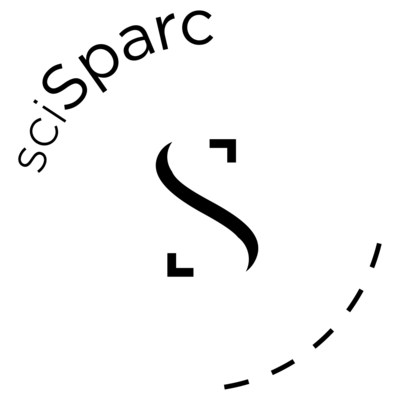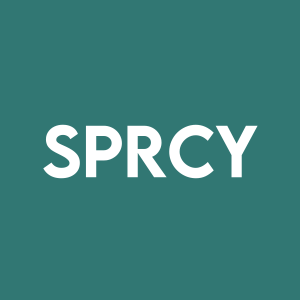SciSparc to Conduct a Phase IIa Clinical Trial in Alzheimer's Patients Using the Company's Proprietary Cannabinoid-Based Treatment
SciSparc Ltd. (OTCQB: SPRCY) has entered an agreement with The Israeli Medical Center for Alzheimer's to begin a Phase IIa clinical trial evaluating the safety and efficacy of SCI-110 in Alzheimer’s patients exhibiting agitation. The principal objective focuses on the drug's safety, while secondary goals aim to assess its ability to alleviate agitation in these patients. The trial is expected to start promptly upon receiving necessary regulatory approvals. SCI-110 combines Dronabinol and Palmitoylethanolamide, targeting a market with inadequate current treatment options.
- Agreement with a reputable medical center to conduct a clinical trial.
- Focus on a significant health issue (Alzheimer's disease and agitation) with growing market potential.
- Potential for innovative treatment solutions in a space with limited efficacy from current drugs.
- Dependence on regulatory approvals for the trial to commence.
- Current treatments for agitation in Alzheimer's are unsatisfactory, indicating high competition and market challenges.
TEL AVIV, Israel, Feb. 17, 2021 /PRNewswire/ -- SciSparc Ltd. (formerly known as Therapix Biosciences Ltd.) (OTCQB: SPRCY) a specialty, clinical-stage pharmaceutical company focusing on the development of cannabinoid-based treatments, today announced it has signed an agreement with The Israeli Medical Center for Alzheimer's, to conduct a phase IIa clinical trial to evaluate the safety, tolerability and efficacy of SCI-110 (formerly THX-110) in patients with Alzheimer's disease and agitation using the Company's proprietary cannabinoid-based technology.
The study's primary objective is the safety of SCI-110 and the secondary objective is the ability of the compound to ameliorate agitation and other behavioral disturbances in patients with Alzheimer's disease.
The study will be initiated immediately after receipt of all the required approvals from the Institutional Review Boards (IRB) and the Israeli Ministry of Health (MoH).
The study, titled "Clinical Study Protocol Phase II-a open label trial to evaluate the safety, tolerability and efficacy trend of SCI-110 in patients with Alzheimer's Disease and agitation," will be conducted under the leadership of Dr. Alona Raveh, MD, Principal Investigator and board-certified geriatrician.
The drug product, SCI-110, is a unique proprietary combination of Dronabinol (synthetic delta-9-tetrahydrocannabinol (Δ⁹-THC), and Palmitoylethanolamide (PEA).
Alzheimer's disease is the most common type of dementia, accounting for over two-thirds of cases of dementia. Alzheimer's disease is a neurodegenerative disease that causes progressive and disabling impairment of cognitive functions including memory, comprehension, language, attention, reasoning and judgment. Symptoms of Alzheimer's disease depend on the stage of the disease. Neuropsychiatric symptoms like apathy, social withdrawal, disinhibition, agitation, psychosis, insomnia, poor appetite and wandering are also common in the mid to late stages.
The current pharmacological treatment of agitation in Alzheimer's disease has an unsatisfactory benefit/risk ratio and often involves using off-label drugs. Antipsychotic drugs, which are the most frequently used drugs for this purpose, are only marginally better than placebo.
"As the population of the world continues to age, Alzheimer's disease is one of the most common diseases affecting the elderly. Alzheimer's disease is frequently associated with neuropsychiatric symptoms such as agitation and aggression, especially in the severe stages of the illness. However, the limited efficacy and high-risk profiles of current pharmacotherapies for the management of agitation and aggression in Alzheimer's disease left us, the caregivers, with no good treatment alternatives. We are always in the search for new, innovative treatment solutions, and I hope SCI-110 may represent such a solution," said Nitai Eliash, the Chief Executive Officer of the Israeli Medical Center for Alzheimer's, where the trial will take place.
"We believe there is strong scientific rationale for exploring SCI-110 in patients with Alzheimer's disease and agitation and we appreciate very much the collaboration and opportunity to study our innovative proprietary drug candidate, SCI-110, at the leading center in Israel for the treatment of Alzheimer's disease patients," stated Dr. Adi Zuloff-Shani, PhD, Chief Technology Officer of SciSparc.
About SciSparc (OTCQB: SPRCY):
SciSparc Ltd. is a specialty clinical-stage pharmaceutical company led by an experienced team of senior executives and scientists. Our focus is on creating and enhancing a portfolio of technologies and assets based on cannabinoid pharmaceuticals. With this focus, the Company is currently engaged in the following drug development programs based on THC and/or non-psychoactive cannabidiol (CBD): SCI-110 (formerly THX-110) for the treatment of Tourette syndrome and for the treatment of obstructive sleep apnea; SCI-160 (formerly THX-160) for the treatment of pain; and SCI-210 (formerly THX-210) for the treatment of autism spectrum disorder and epilepsy.
About The Israeli Medical Center for Alzheimer's:
The Israeli Medical Center for Alzheimer's (IMCA) is the only medical center in Israel exclusively devoted to the treatment of Alzheimer's disease patients. IMCA was founded in 1994 as a public, not for profit foundation, and in July 2001 it opened as an active medical center. The Alzheimer's center treats hundreds of patients a year, as inpatients, outpatients and as part of its diagnosis and counseling services. Numerous studies are conducted at the center in collaboration with researchers at universities.
Forward-Looking Statements:
This press release contains forward-looking statements within the meaning of the "safe harbor" provisions of the Private Securities Litigation Reform Act of 1995 and other Federal securities laws. For example, SciSparc is using forward-looking statements when it discusses expectations regarding the potential for approvals needed for the initiation of the Phase IIa study, the safety of SCI-110 and the ability of SCI-110 to treat Alzheimer's disease. The transaction described here may never be consummated and definitive agreement(s) may not be executed, and, if executed, such agreement(s) may be subject to conditions before it can be completed. In addition, the market for products contemplated by the letter of intent is in a period of regulatory and business uncertainty and financial and business results from such businesses are uncertain. Historic results of scientific research and clinical and preclinical trials do not guarantee that the conclusions of future research or trials will suggest identical or even similar conclusions. Because such statements deal with future events and are based on SciSparc's current expectations, they are subject to various risks and uncertainties and actual results, performance or achievements of SciSparc could differ materially from those described in or implied by the statements in this press release. The forward-looking statements contained or implied in this press release are subject to other risks and uncertainties, including those discussed under the heading "Risk Factors" in SciSparc's Annual Report on Form 20-F filed with the SEC on June 15, 2020, and in subsequent filings with the U.S. Securities and Exchange Commission. Except as otherwise required by law, SciSparc disclaims any intention or obligation to update or revise any forward-looking statements, which speak only as of the date they were made, whether as a result of new information, future events or circumstances or otherwise.
Investor Contact:
IR@scisparc.com
Tel: +972-3-6167055
![]() View original content to download multimedia:http://www.prnewswire.com/news-releases/scisparc-to-conduct-a-phase-iia-clinical-trial-in-alzheimers-patients-using-the-companys-proprietary-cannabinoid-based-treatment-301229931.html
View original content to download multimedia:http://www.prnewswire.com/news-releases/scisparc-to-conduct-a-phase-iia-clinical-trial-in-alzheimers-patients-using-the-companys-proprietary-cannabinoid-based-treatment-301229931.html
SOURCE SciSparc Ltd.
FAQ
What is the purpose of the Phase IIa clinical trial for SCI-110?
When will the clinical trial for SCI-110 start?
What are the main components of SCI-110?
What are the expected outcomes of the SCI-110 trial?








